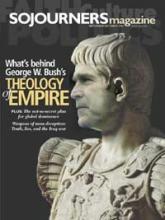The failure to discover weapons of mass destruction in Iraq has exposed the lie at the heart of the Bush administration's case for war. It is part of a much deeper web of deceit that underlies U.S. policy in Iraq.
Prior to the war the president repeatedly claimed, as he said two days before the invasion, that "the Iraq regime continues to possess and conceal some of the most lethal weapons ever devised." After months of searching hundreds of suspected sites, U.S. occupying forces have found no evidence that the alleged stockpiles actually exist, just as U.N. inspectors found no prohibited weapons in the months leading up to war.
Iraq's rapid collapse in battle was enough to disprove the claim of military menace. Far from being a massively armed colossus bent on aggression, Iraq turned out to be an ill-equipped and impoverished country, lacking in advanced weaponry and unable to defend itself against U.S. and British assault.
The administration systematically ignored evidence disproving its case for war. It refused to acknowledge the combined effects of the first Gulf war and 12 years of punishing sanctions, which severely limited Iraq's military capabilities. It denied the successful results of the first U.N. disarmament commission, from 1991 to 1998, and rebuffed the renewed monitoring effort that began in December 2002. And, as the administration finally admitted, it ignored its own intelligence agencies to trumpet forged "evidence" of alleged uranium imports from Africa.
Read the Full Article
